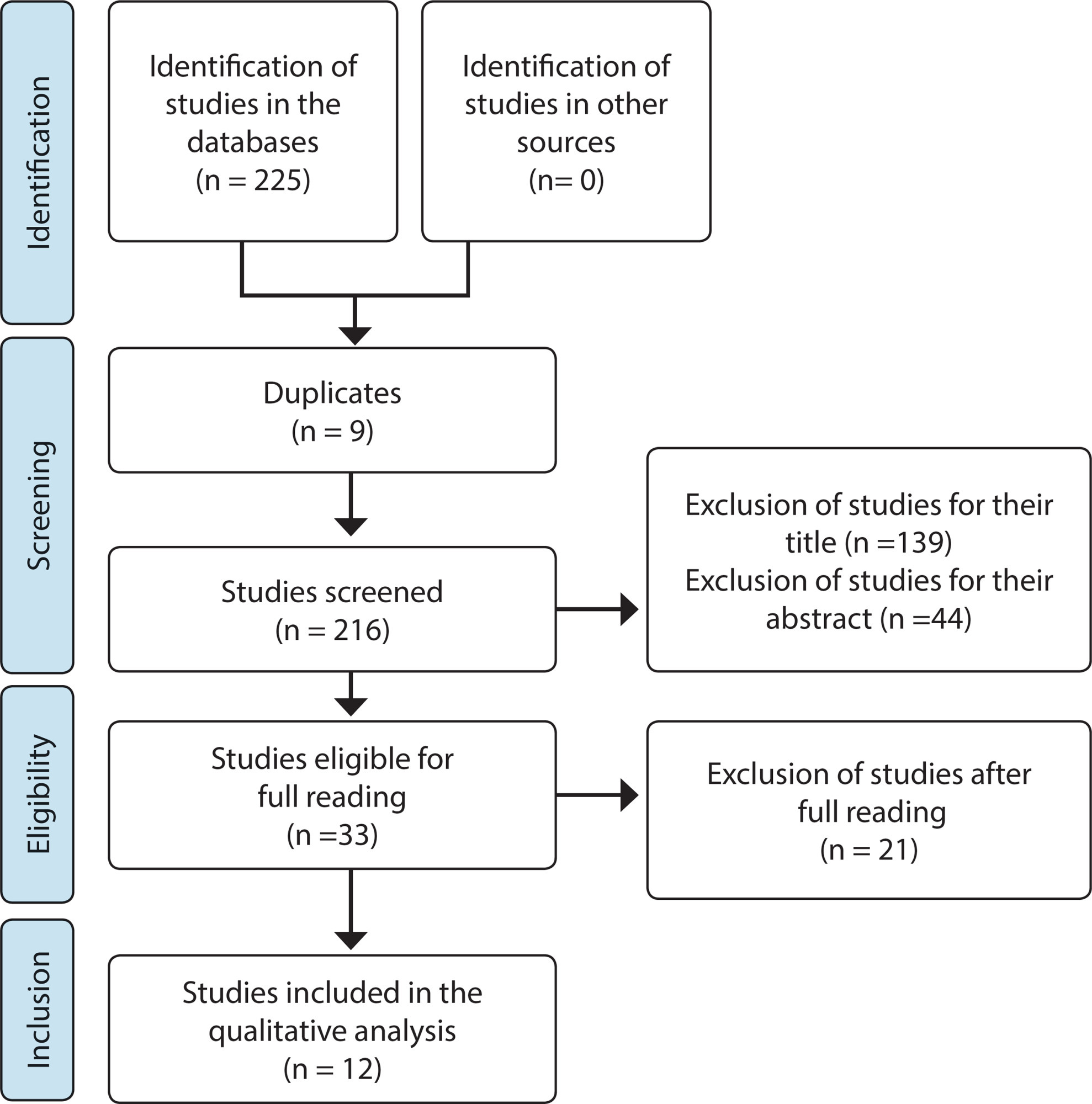-
ORIGINAL ARTICLE
Cardiac anxiety in the perioperative period of patients undergoing cardiac surgical procedures: an observational study
Revista Brasileira de Enfermagem. 2023;76(1):e20220250
12-16-2023
Resumo
ORIGINAL ARTICLECardiac anxiety in the perioperative period of patients undergoing cardiac surgical procedures: an observational study
Revista Brasileira de Enfermagem. 2023;76(1):e20220250
12-16-2023DOI 10.1590/0034-7167-2022-0250
Visualizações0Ver maisABSTRACT
Objective:
to compare cardiac anxiety symptoms in patients undergoing coronary artery bypass graft and valve surgery repair in the preoperative period, on the day of hospital discharge and on the first return visit after hospital discharge.
Methods:
an observational study, carried out in inpatient units and in outpatient clinic of a university hospital. Data were collected through interviews. Cardiac anxiety symptoms were assessed using the Cardiac Anxiety Questionnaire.
Results:
we observed the effect of time on cardiac anxiety symptoms of patients undergoing coronary artery bypass graft in the total score and in the “Avoidance” domain at discharge and at the first return visit. In patients undergoing valve repair surgery, the effect of time on symptoms was observed only in the first return visit, when compared with the preoperative period.
Conclusion:
the findings revealed increased cardiac anxiety symptoms in the postoperative period, discharge and first return, when compared to the preoperative period.
-
REVIEW
Tools for managing childcare in the postoperative period of cardiac surgery: an integrative review
Revista Brasileira de Enfermagem. 2021;74(suppl 4):e20200073
04-26-2021
Resumo
REVIEWTools for managing childcare in the postoperative period of cardiac surgery: an integrative review
Revista Brasileira de Enfermagem. 2021;74(suppl 4):e20200073
04-26-2021DOI 10.1590/0034-7167-2020-0073
Visualizações0ABSTRACT
Objective:
To analyze the scientific literature on the application of management tools in the postoperative period of pediatric cardiac surgery.
Methods:
integrative review including studies published between 2004 and 2018 in the following databases: LILACS, BDENF, coleciona SUS, MEDLINE/PUBMED, CINAHL and SCOPUS, via Portal de Periódicos da Capes, Scientific Electronic Library Online (SciELO) and Academic Google research.
Results:
Twelve articles that met the inclusion criteria were analyzed. The studies demonstrated that strategies such as extracorporeal membrane oxygenation, renal replacement therapy and the risk scores for Risk Adjustment for Congenital Heart Surgery 1 and Aristotle Basic Score favored the stratification the demand for care and predicted the risk for mortality.
Final considerations:
The applicability of risk scores and emerging strategies for the management of childcare in the postoperative period of cardiac surgery was described by the evaluation of possibilities of performance and/or efficiency of the treatments developed.
Palavras-chave: Critical CareOrganization and AdministrationPediatric NursingPostoperative PeriodThoracic SurgeryVer mais
-
PESQUISA
Stressors perceived by patients in the immediate postoperative of cardiac surgery
Revista Brasileira de Enfermagem. 2016;69(4):741-750
01-01-2016
Resumo
PESQUISAStressors perceived by patients in the immediate postoperative of cardiac surgery
Revista Brasileira de Enfermagem. 2016;69(4):741-750
01-01-2016DOI 10.1590/0034-7167.2016690418i
Visualizações0ABSTRACT
Objective:
to investigate stressors perceived by patients in the immediate postoperative of cardiac surgery and their association with sociodemographic and clinical characteristics.
Method:
a prospective correlational study conducted in a city in São Paulo, between August 2013 and December 2014. A non-probabilistic sample included patients submitted to their first coronary artery bypass graft or mitral valve surgery. The "Environmental Stressor Questionnaire" adapted to Portuguese was used.
Results:
105 patients participated in the study. The item "being thirsty" was evaluated as the most stressful and "the nursing staff member does not introduce himself/herself by the name" as the least stressful. Among sociodemographic and clinical variables (gender, age, type and time of surgery, pain, intubation time, use of psychotropic medications and length of stay in the intensive care unit), only pain presented a significant association with the stressors.
Conclusion:
knowing stressors can help implement practices associated with their reduction, favoring patients' recovery.
Palavras-chave: Intensive Care UnitsNursing CarePerioperative NursingPhysiological StressThoracic SurgeryVer mais



